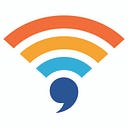How a New Federal Program Is Helping More People Get Connected to Broadband
By Cheryl A. Leanza, United Church of Christ’s media justice ministry, OC Inc., and Olivia Wein, National Consumer Law Center
Cross-posted with The Leadership Conference on Civil and Human Rights and the National Consumer Law Center.
More than one year into the COVID-19 pandemic, one thing is certain: Our lives have forever changed — and daily reliance on digital connectivity is here to stay. Reliable and affordable access to the internet is essential for everything from telemedicine appointments to digital and remote learning to jobs and work training. For these reasons, lack of internet access among low-income people and communities of color is a critical equity and civil rights concern — and it’s made even more urgent by the financial hardship brought on by the pandemic. The good news is that advocates are making real progress with the launch last month of a new program to help bring affordable internet to everyone.
As we explained last year:
Not all broadband access is equal: a disproportionate number of Black and Latino households rely on a smartphone (small screen) for their broadband connectivity. It is clear during this pandemic that working and learning via a smartphone with limited data and throttling is second-class access compared with using a laptop via wi-fi and an unlimited wired broadband connection.
This is why The Leadership Conference worked with other stakeholders to push Congress to adopt a new, emergency broadband program to make sure more people can afford to stay connected to the internet during the current public health and economic crisis. And Congress listened! At the end of 2020, Congress allocated $3.2 billion as part of the COVID-19 relief package to create a temporary broadband benefit. The temporary, federal Emergency Broadband Benefit (EBB) program launched May 12, 2021. This program, overseen by the Federal Communications Commission (FCC), is geared toward connecting more households to the internet at a time when we rely on digital connectivity more than ever before. Eligible households can now apply for this short-term program, which can provide free or discounted internet service — up to $50 a month ($75 on tribal lands) toward the cost of a consumer’s internet bill. In some cases, where Internet Service Providers (ISPs) participate, consumers can obtain a tablet or computer for a co-payment of $10–50.
Since the program is temporary, it is important for consumers to sign up right away before funding runs out. A new website, EBBHelp.org, can help consumers navigate the easiest way to verify whether they are eligible for the program. Many consumers already qualify if they participate in an existing low-income program run by large broadband companies or if they already receive certain low-income federal benefits like Medicaid or food assistance through SNAP. Once a consumer is ready to apply, they should visit GetEmergencyBroadband.org and contact their internet provider to select the right product for their needs.
Some internet providers are also offering consumers assistance in applying for the program. One million households signed up for this federal discount program in just the first week, but this is just a start — we know millions more families across the country are eligible to take advantage of this program: but only if they know about it. We need everyone who cares about equity to help spread the word about this program. The Leadership Conference has created a useful outreach toolkit with social media content and sample messages to make it easy to be part of the effort.
Advocacy is underway to secure additional funds for the EBB program as the current funding may not last to the end of the year. And the civil rights community is also working tirelessly on a permanent broadband affordability program informed by the EBB program and your stories about the importance of affordable broadband service for your family and community.

Universal, affordable broadband is essential in order for households and communities to build back stronger from this unprecedented public health and economic crisis. As we head into the summer months, we will continue to rely on digital connectivity to conduct and enhance our daily lives. Join us in getting everyone digitally connected now.
For more information, visit GetEmergencyBroadband.org or EBBHelp.org. And to help spread the word, use the FCC’s outreach toolkit or our toolkit to help communities #GetConnectedEBB.
Olivia Wein is a staff attorney at the National Consumer Law Center. Cheryl Leanza serves as policy advisor to the United Church of Christ’s historic media advocacy arm, which is a co-chair of The Leadership Conference’s Media and Telecommunications Task Force.
